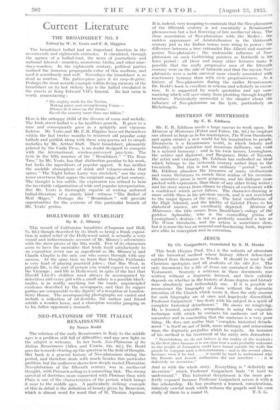Current Literature
THE BROADSHEET NO. 5 Edited by W. B. Yeats and F. R. Higgins The broadsheet ballad had an important function in the seventeenth and eighteenth centuries. It circulated, through the agency of a ballad-tout, the news of journalistic and national interest—murders, monstrous births, and other nine- days-wonders. In the eighteenth century, political parties realized the immense propaganda-value of this medium, and used it scurrilously and well: Nowadays the broadsheet is as dead as mutton. The gutter-press gave it its coup-dc-grdce. Perhaps the most notable example within living memory of the broadsheet on its last rickety legs is the ballad circulated in the streets at King Edward VIT's funeral. Its last verse is worth remembering :
" His mighty work for the Nation, Making peace and strengthening Union—. Always at it,since on the throne : Saved the country more than one billion."
Here is the unhappy child of the divorce of verse and melody. The Irish street-ballad is a far healthier growth. It grew to a tune and consequently grew in a sprightly and vigorous fashion, Mr. Yeats and Mr. F. R. Higgins have set themselves within the last twelve months to resurrect old popular song ballads and publish along with them song-poems set to simple melodies by Mr. Arthur Duff, Their 'broadsheet, pleasantly printed by the Cuala Press, is no doubt designed to compete with the international, wireless-purveyed jazz-lyric. The lyric in the fifth number of the " Broadsheet," "The Rose Tree," by Mr. Yeats, has that distinction peculiar to his work, but lacks the ingredients of popular appeal. It has neither the sociable atmosphere of drink and tobacco-smoke that spices " The Night before Larry was stretched," nor the cosy tenor sweetness that sugars the emigrant songs of last century. The thought is too subtle, the expression too refined to bear the inevitable vulgarization of wide and popular interpretation. But Mr. Yeats is thoroughly capable of writing unforced ballad-literature of a sturdy kind—witness "The Ballad of Moll Magee." Perhaps the " Broadsheet " will provide opportunities for the exercise of this particular branch of Mr. Yeats' 'genius.


































 Previous page
Previous page